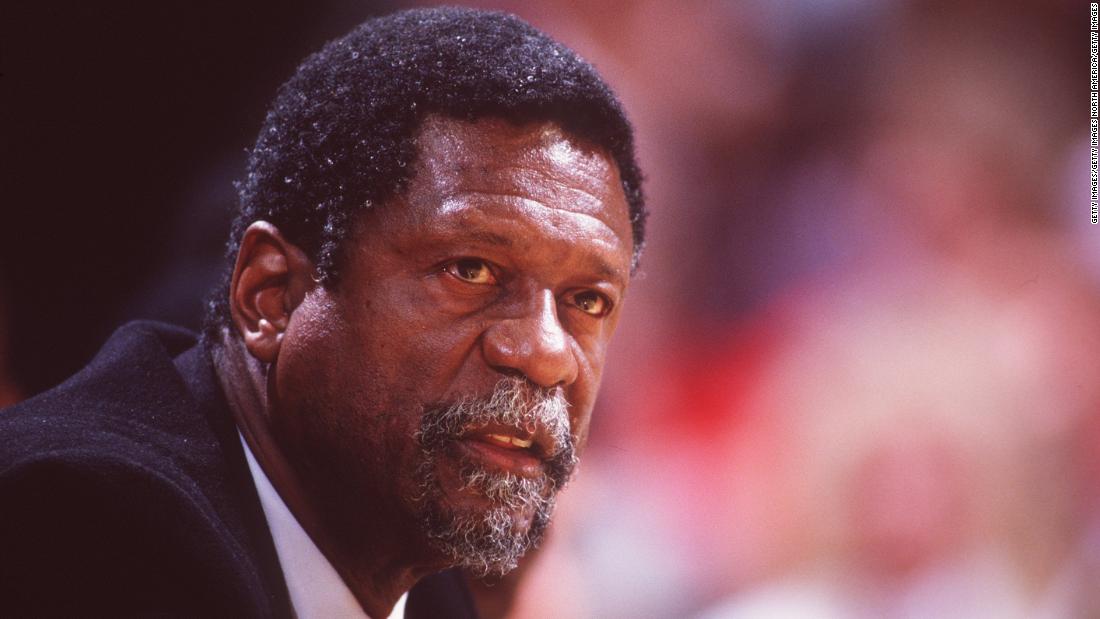Opinion: Boston's checkered history with its greatest sports icon - 4 minutes read

(CNN) With apologies to basketball greats Bob Cousy and Larry Bird, Bill Russell will forever be the most important superstar ever to play for the Boston Celtics.
And with another apology, to legendary NFL quarterback Tom Brady, Russell will always be the GOAT -- not just of Boston, but of excellence and winning in American sports.
Russell's early life was marked by the tragic death of his mother and the daily challenges of growing up in racially segregated Monroe, Louisiana, where his father was threatened with a shotgun for challenging Jim Crow-era rules that allowed Whites to be served ahead of Blacks. His mother, who passed away when he was 12, was nearly arrested once for being too elegantly dressed for a Black woman.
Russell's family later migrated to Oakland, California, where he became a top player on his high school basketball team, followed by a star turn in college basketball, leading the University of San Francisco to two NCAA championships. In 1956, he led the US Olympic team to a basketball gold medal.
Then came the proving ground of Boston.
Russell joined the Boston Celtics in 1956, just two years after the Supreme Court's Brown v. Board of Education decision announced the notion of "separate but equal" schooling unconstitutional. As one of few Black players on the Celtics, Russell experienced a unique kind of racial trauma.
Perhaps out of defiance against the racism he encountered throughout his life, Russell became one of the country's most visible athletes in the civil rights realm. He charged the overwhelmingly White NBA in the late 1950s with purposely excluding Black players. In 1961, after two Black Boston Celtics were denied service at a Lexington, Kentucky, restaurant before a preseason exhibition game, Russell led a boycott in which he and other Black players refused to play in the state.
That record of success eventually helped win over reticent Boston fans, but it took a number of years, and by then the relationship was beyond repair. Russell said that he "played for the Celtics" but "not the city of Boston," according to his daughter, Karen, who movingly wrote about the family's encounters with racism in an essay for The New York Times.
Russell continued to leave a mark on the sport of basketball long after his playing days were over. In 2009, the National Basketball Association renamed its Finals MVP trophy after him. He became the league's elder statesman, building cordial relationships with a new generation of players that included LeBron James, the player whose activism and authenticity is most reminiscent of Russell's.
As if appearing in a news reel of the most significant events of the civil rights era, he was present, time and again, at key moments for the movement, from the March on Washington in 1963 to his visit to Mississippi that same year following the assassination of civil rights leader Medgar Evers.
Russell also supported Muhammad Ali's refusal to be drafted into the Vietnam War and actively resisted racial segregation and injustice in all of its forms. In 2011, then-President Barack Obama awarded Russell the Presidential Medal of Freedom , not just in honor of his athletic feats, but for his sense of commitment to social justice and equality.
Over the years, he never lost his willingness to call out racism, or perceived indifference to it. In recent years, he chided White Americans for their incredulity -- in the aftermath of George Floyd's murder and the racial and political reckoning that followed -- about the existence of systemic racism.
"In 2020, Black and Brown people are still fighting for justice, racists still hold the highest offices in the land, and kids today still grow up with cultural norms that aren't different enough from the ones that Lester Maddox grew up with," Russell wrote, referring to the restaurateur-turned-Georgia governor, who infamously turned Black patrons from his chicken shack with an ax handle.
"This surprise is particularly dangerous because racial injustice is rampant throughout every sector of American society, from education to health care to sports," Russell wrote, "and the fact that this remains surprising to many reveals exactly how different Black and White people's experiences of life in America are."
Source: CNN
Powered by NewsAPI.org